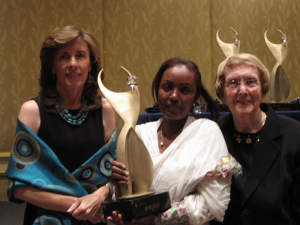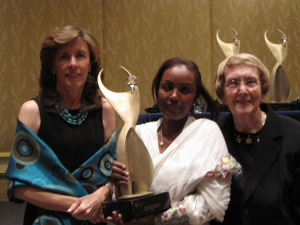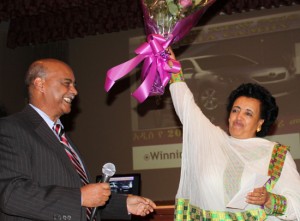
A Fistula Surgeon’s Perspective on Strategies to Fight Fistula

From, Realitycheck.org: By Dr. Mulu Muleta, I grew up in rural Ethiopia. I’ve seen first-hand the devastating impact of obstetric fistula on women bravely suffering with this preventable injury. When I was completing post-graduate school in Ethiopia’s capital Addis Ababa, I had the opportunity to train in fistula surgery. I found this work to be uniquely compelling and chose at that point to focus my career on helping women in Ethiopia and other countries get the life-changing treatment for fistula. That was nearly twenty years ago, and I still find fistula surgery deeply rewarding work.
We must recognize that most obstetric fistula care, prevention, training and social re-integration services operate outside the government health sector often involving surgeons who come for short visits. The very few non- governmental specialized fistula repair and training centers are unable to meet the enormous need for fistula care and training services and long term sustainability of such services is not certain.
There is global consensus on the need for improved access to quality and sustainable fistula care and training services; accessible postoperative social-reintegration services; improved information through researches based on hard data and on the need for consistent allocation of resources for this cause. The need for prevention of obstetric fistula and safe motherhood is also critical.
I am therefore thrilled to be working for Women and Health Alliance International (WAHA) because WAHA’s strategy acknowledges the contribution of partners engaged in obstetric fistula prevention and different activities to improve health of women. Most importantly, WAHA focuses on this integrative approach to fighting fistula care – an approach which embraces prevention, research, training and social re-integration services; local capacity building; collaboration with other partners and community engagement as its strategic choice. WAHA International will make every effort to synchronize these fundamentals of global strategy for Women’s and Children’s health with the precedence of public institutions involved in the collaboration. In addition to treatment given to women with obstetric fistula, care of other women with postpartum complications — such as uterine prolapse and third degree perineal tears — is integrated to the whole range of patient care services of public institutions.
One truly exciting part of WAHA’s strategy is to work through universities. In my home country, Ethiopia, we are working with three universities in Gondar, Adama and Jimma, respectively, to build sustained local capacity for fistula treatment, prevention and maternal health promotion. WAHA is building similar partnerships in Cameroon and Niger. Consultant specialists with basic surgical skill receive in-service training on fistula care. This knowledge and skill empowers the consultants not only to treat their patients — women with obstetric fistula — but also to transfer knowledge and skill to their trainees in postgraduate studies. Other health professionals such as midwives, nurses and health officers are trained in obstetric fistula prevention, pre-operative/ postoperative care at these public teaching institutions.
Integrating training at public institutions is ideal to broaden and maximize the number of competent professionals delivering the service in other governmental and non-governmental health care institutions. Further, it provides a system for patient follow-up. Also, an integrated approach improves health promotion, helps prevent and treat diseases, and often proves to be an efficient and cost-effective route to success.
Local capacity building improves access to quality care through increased number of competent health professionals in the field and it is a sustainable approach to development. Community engagement and mobilization enables us to focus on the most vulnerable and hardest-to-reach women and on those living furthest from health services. It also enables us to generate demand for services, produce community based evidence of service effectiveness, and tailor programs to meet the needs of women. Community interventions will be honed in an ongoing effort to make programs targeted to women as effective as possible. This women-centered approach to evaluation and programming is critical. Collaboration enables partners to unite and take coordinated action since everyone has an important role to play. Better health can only be achieved through collaboration among different sectors and partners with women’s needs at the center of strategies and programs. .
Related Articles:


Average Rating